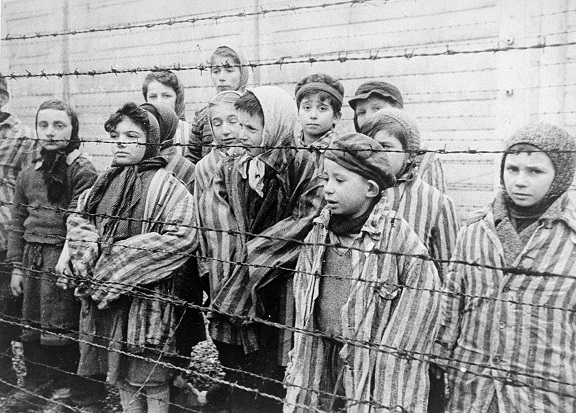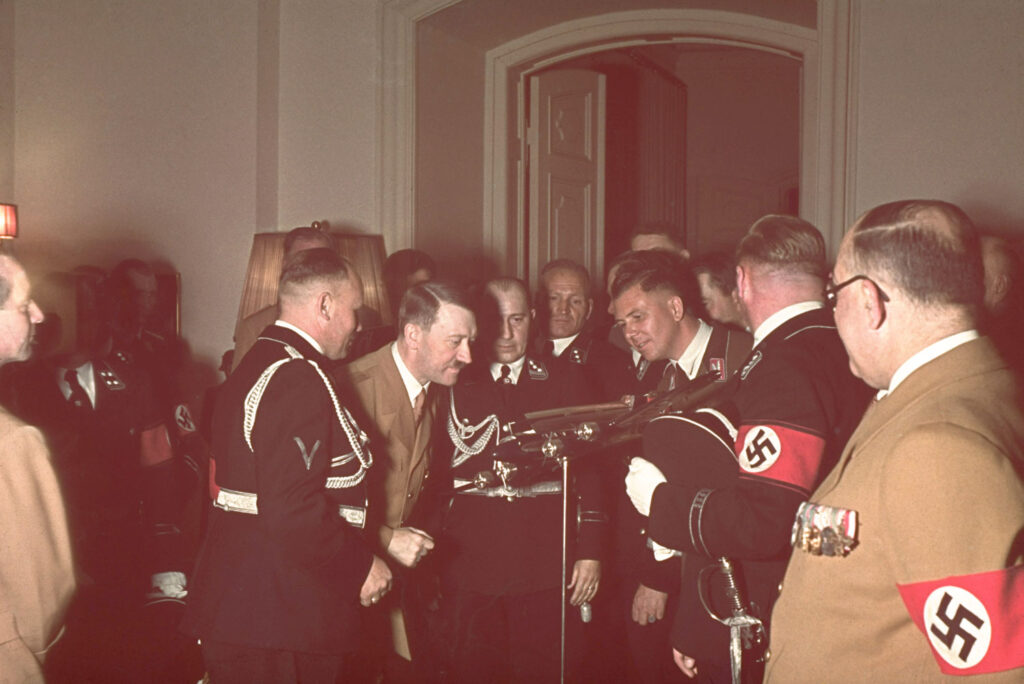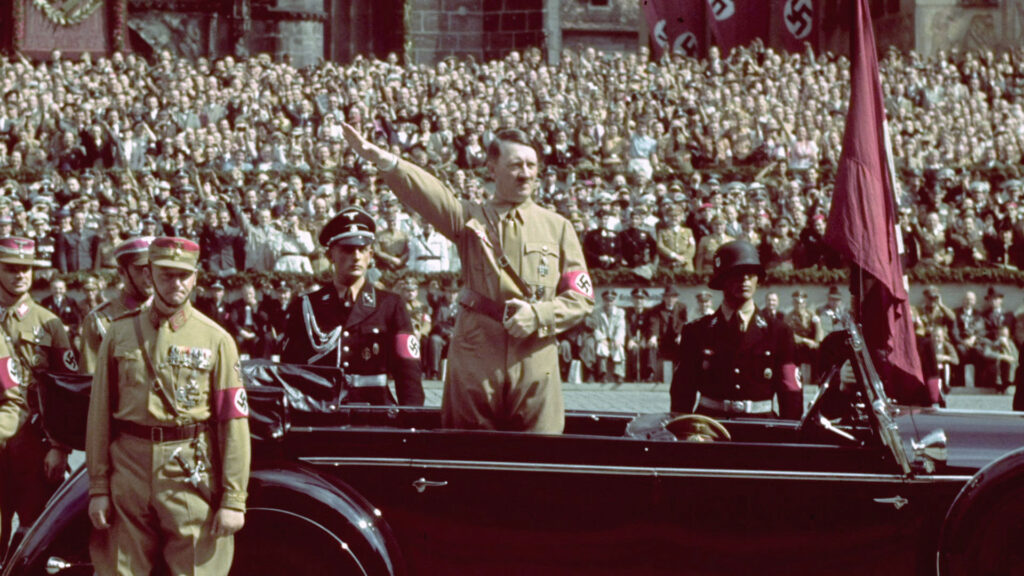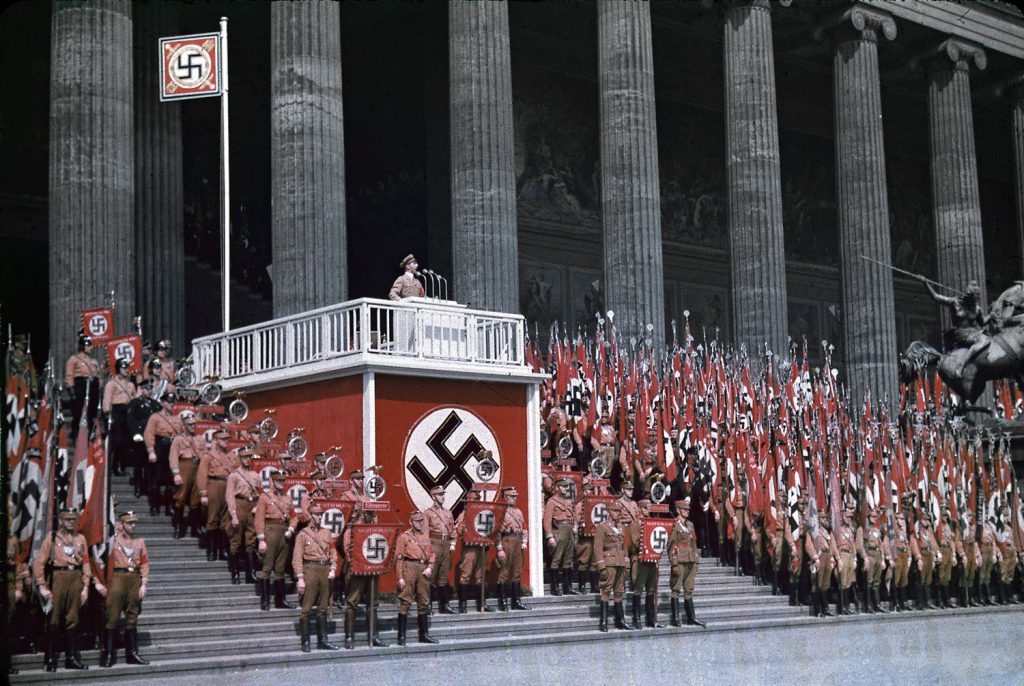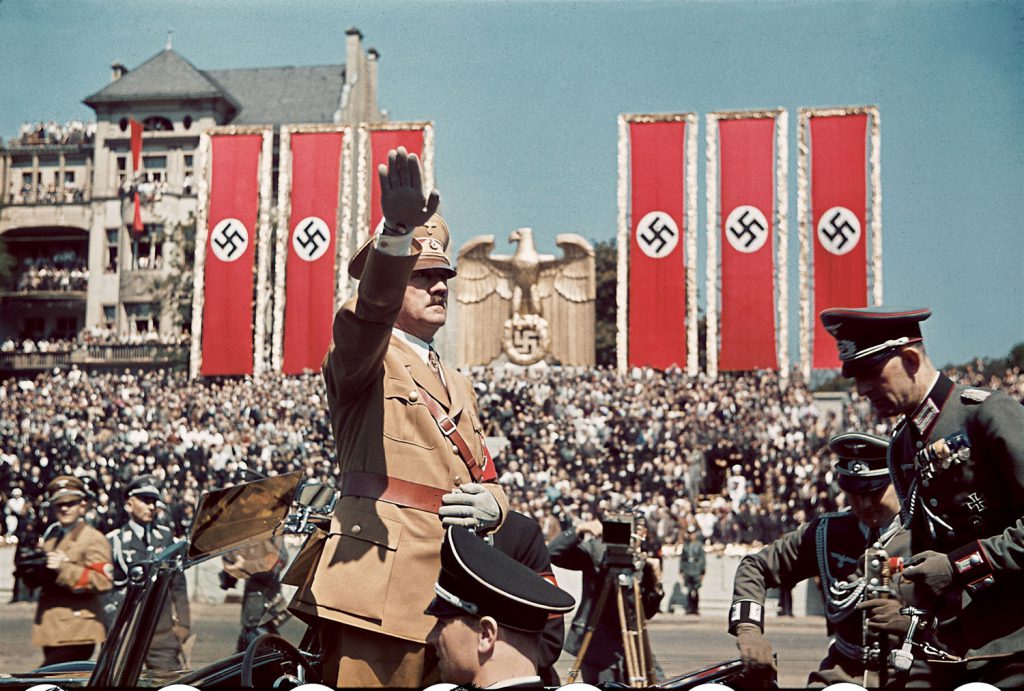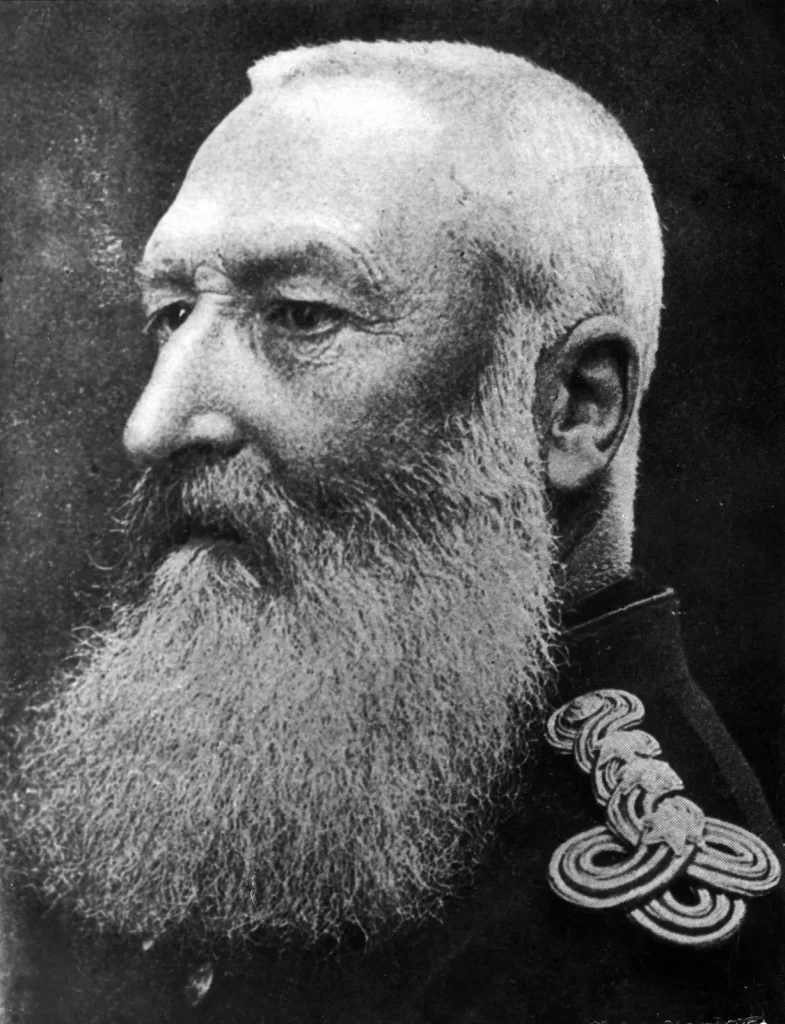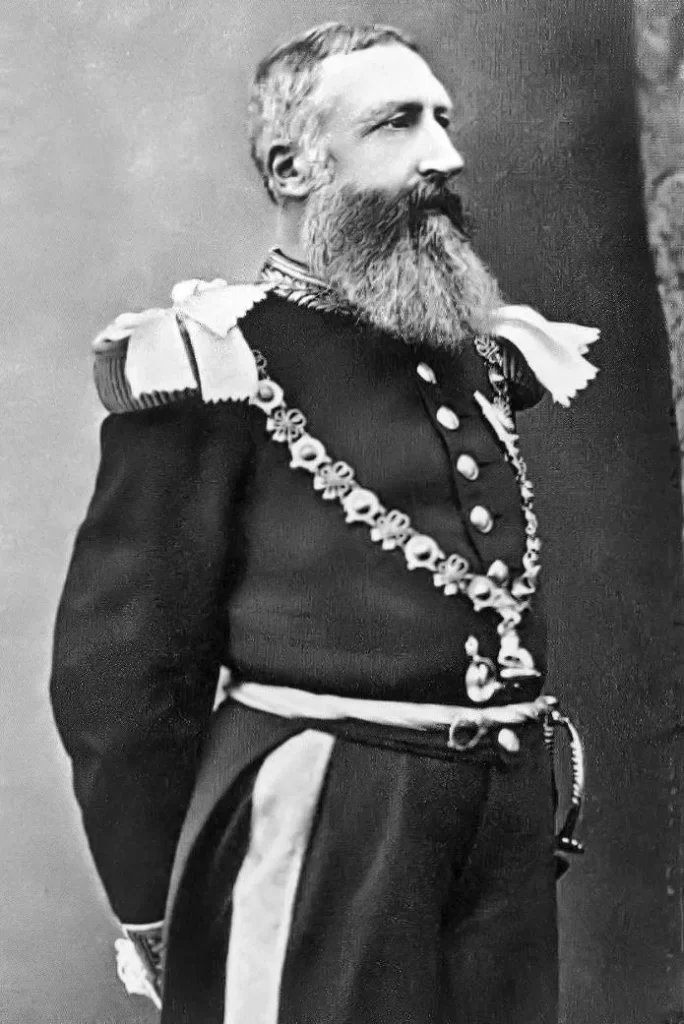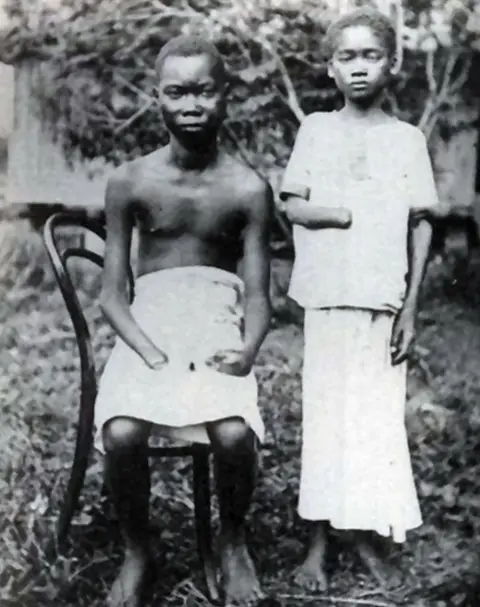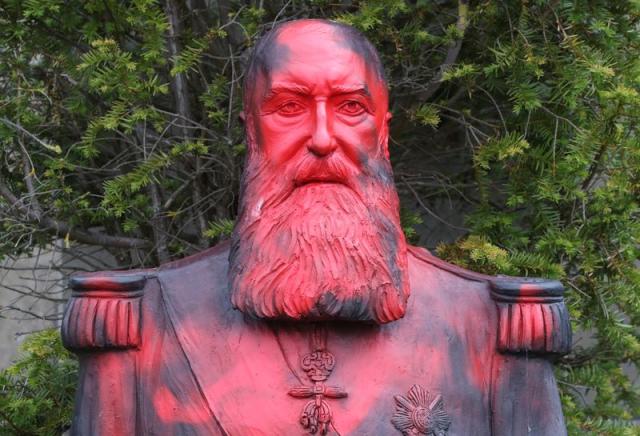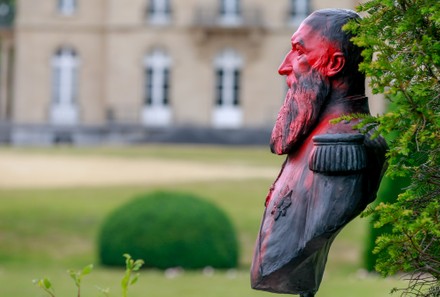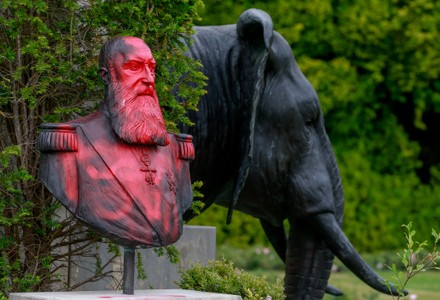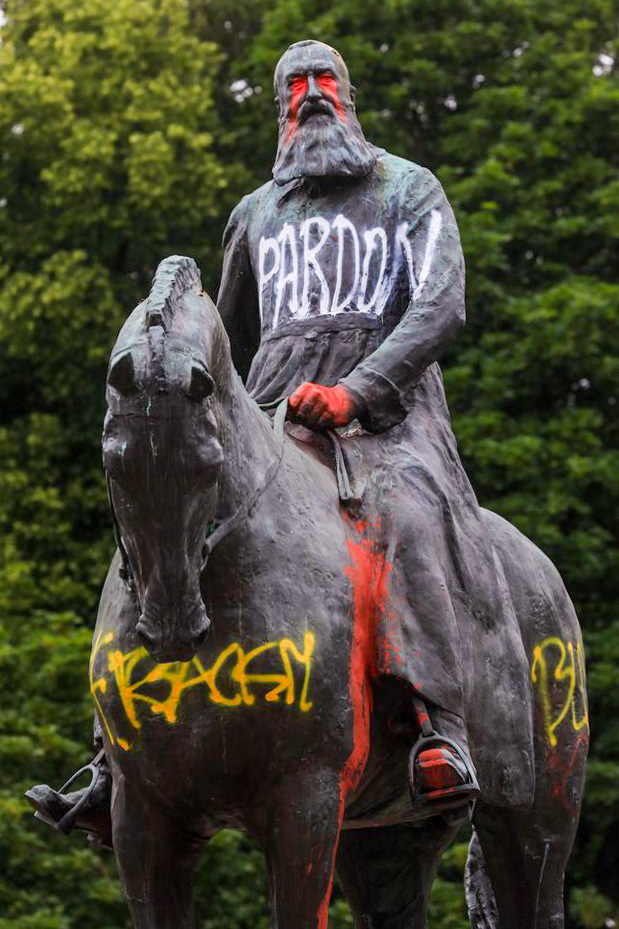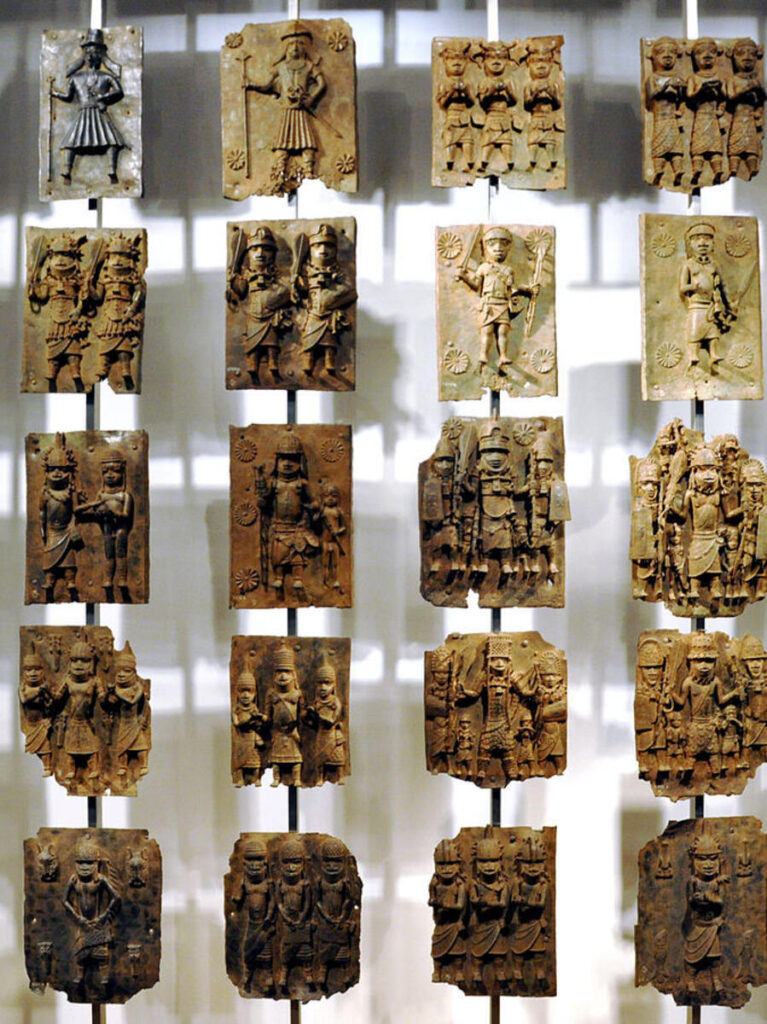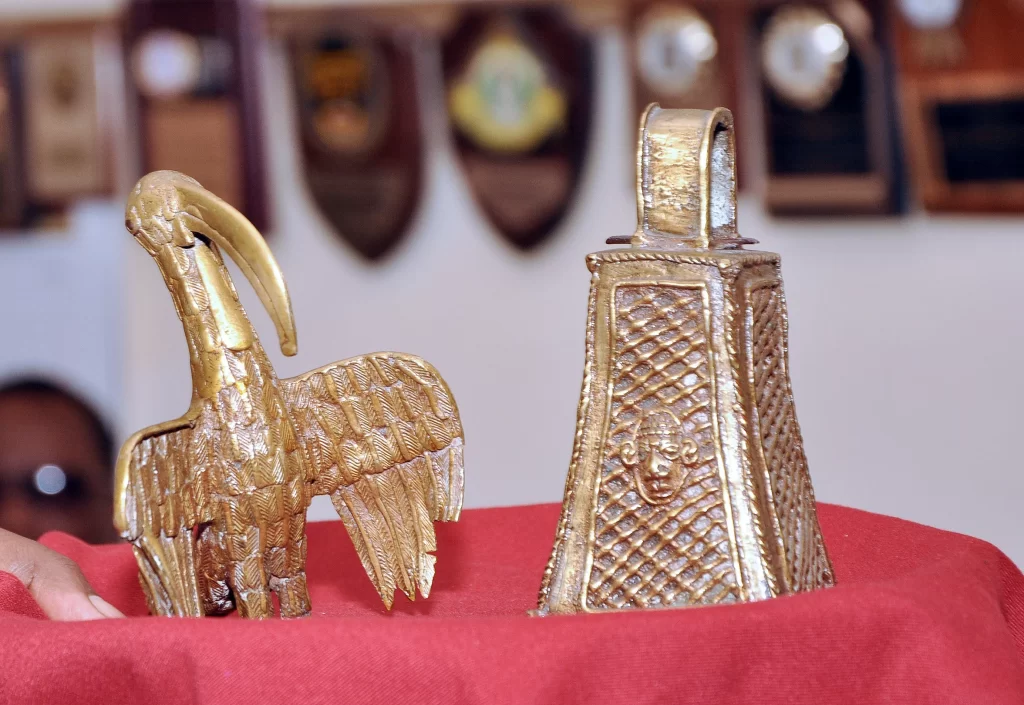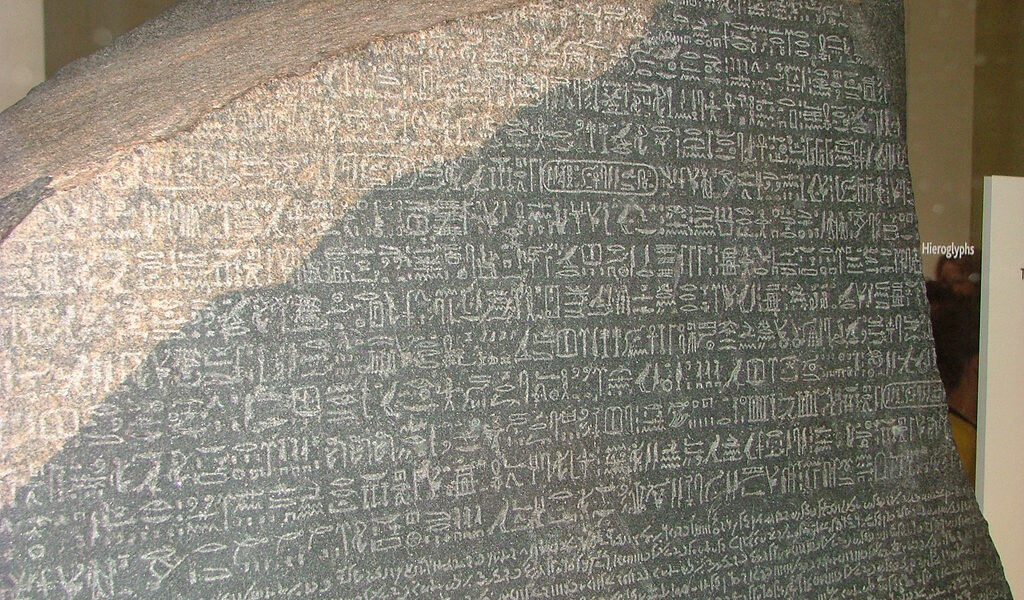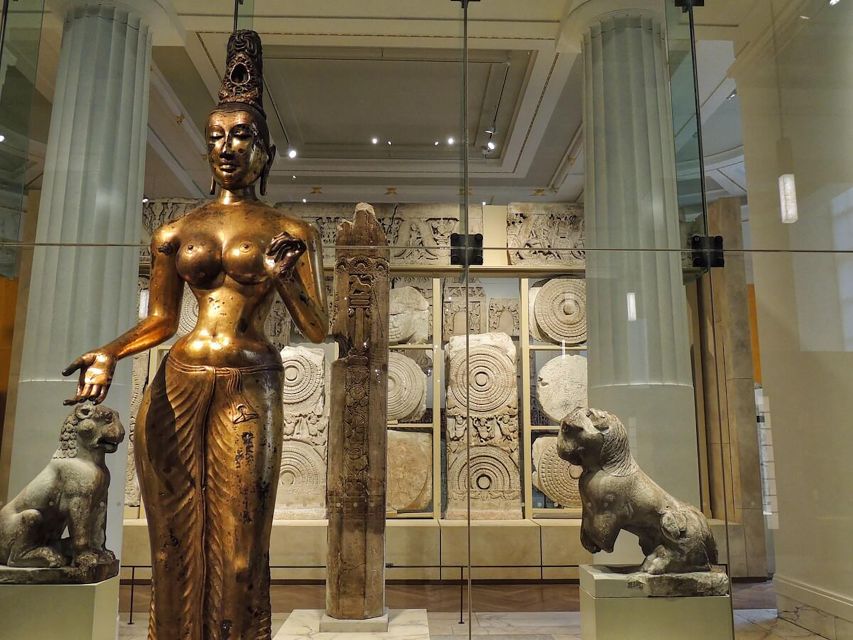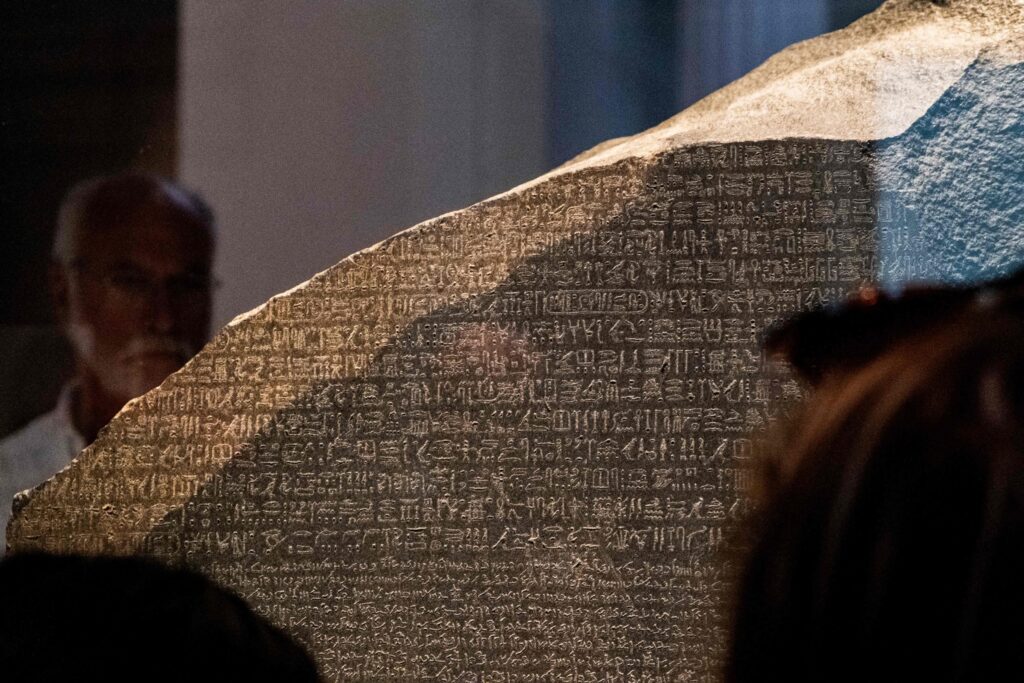Politics
History’s Double Standard: Why Hitler Is Infamous, but Leopold II Is Forgotten
This is a complex and important topic, touching on historical atrocities, racism, colonialism, and the way history is written and remembered. Adolf Hitler is widely recognized as the most evil man in history for orchestrating the Holocaust, which led to the deaths of approximately six million Jews and millions of others, including political dissidents, Romani people, disabled individuals, and other persecuted groups. However, King Leopold II of Belgium, who ruled the Congo Free State as his personal colony, oversaw the deaths of an estimated 10 to 20 million Africans—but his name is far less infamous.
Why is one man universally condemned while the other remains relatively unknown? Let’s explore the historical events, the way history is written, theories about the racial biases behind this discrepancy, and the growing movement to remove monuments honoring figures responsible for mass atrocities.
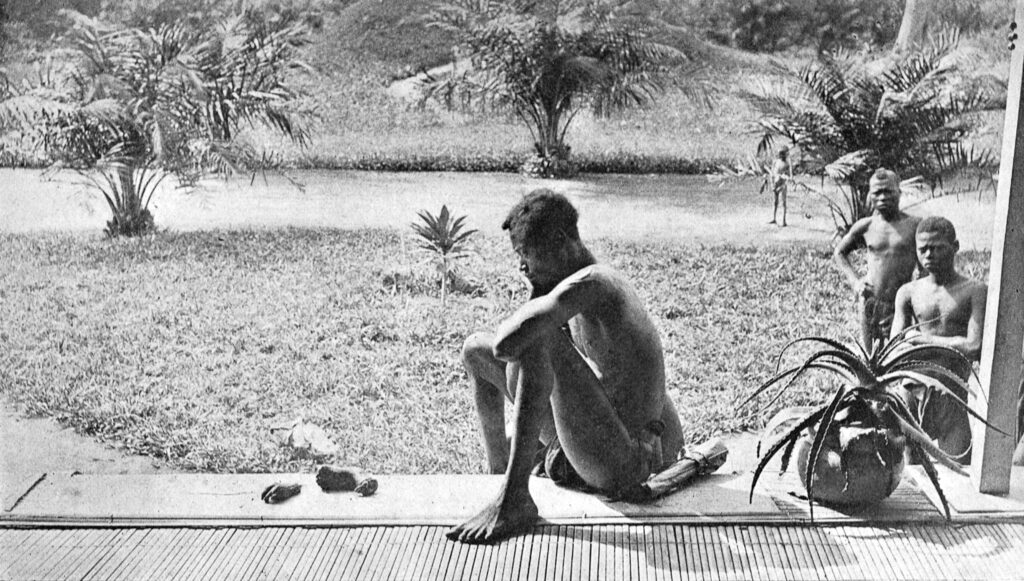
Original caption: “Nsala of Wala in the Nsongo District (ABIR Concession)”. The original description says that Nsala sits “with the hand and foot of his little girl of five years old — all that remained of a cannibal feast by armed rubber sentries. The sentries killed his wife, his daughter, and a son, cutting up the bodies, cooking and eating them.” The “rubber sentries” refer to the ABIR militia. The image has been published on several websites with the caption “A father stares at the hands of his five year-old daughter, which were severed as a punishment for having harvested too little caoutchouc/rubber”.
The Atrocities: Hitler vs. Leopold II
Adolf Hitler (1889-1945) and the Holocaust
Adolf Hitler, as leader of Nazi Germany, instigated World War II and orchestrated the Holocaust. Under his leadership:
- Six million Jews were exterminated in concentration camps and mass executions.
- Millions of others—including Poles, Romani people, disabled individuals, and political enemies—were killed.
- The war led to approximately 70 million deaths worldwide.
Hitler’s crimes were documented extensively during and after the war. The Nuremberg Trials ensured that many of the key perpetrators were held accountable, and Nazi symbols became illegal in Germany and other countries. Today, Hitler’s name is synonymous with absolute evil, and his legacy is one of infamy.
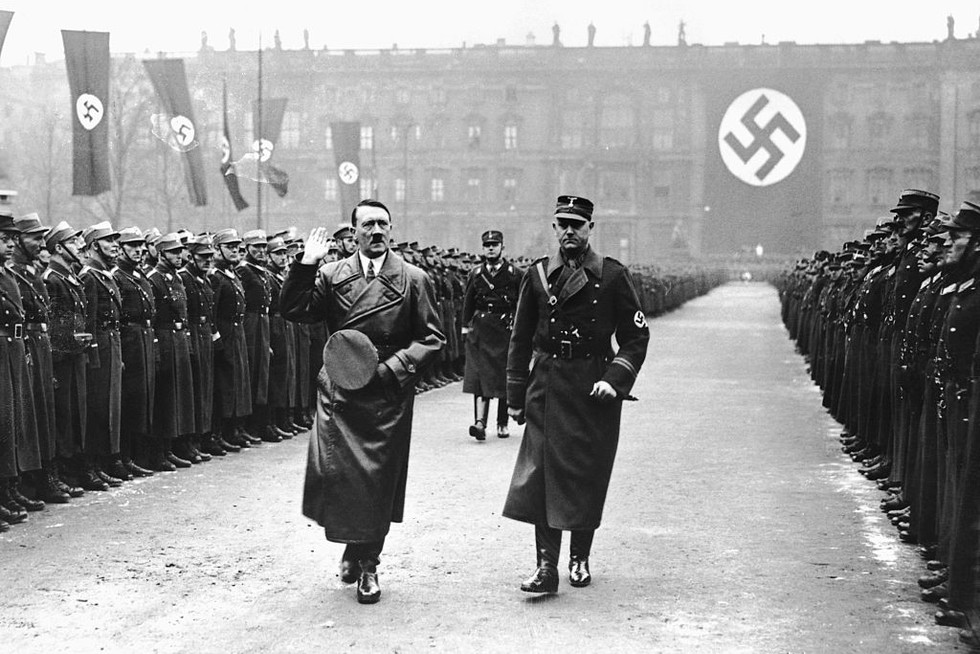
The German Chancellor Adolf Hitler with Herr Lutze, his chief of staff, during a review of the storm troopers in Berlin to mark the third anniversary of Hitler’s rise to power. (Photo by © Hulton-Deutsch Collection/CORBIS/Corbis via Getty Images)
King Leopold II (1835-1909) and the Congo Free State
Leopold II, King of Belgium from 1865 to 1909, was responsible for one of the most brutal colonial regimes in history. Under his rule:
- The Congo Free State (1885-1908) was his personal colony, not a Belgian possession.
- He exploited the land for rubber and ivory, using forced labor and brutal punishments.
- Africans who did not meet rubber quotas had their hands cut off.
- Entire villages were massacred as punishment for resistance.
- The death toll is estimated to be between 10 to 20 million people.
Unlike Hitler, Leopold never faced justice. Instead, when reports of his atrocities reached Europe, he was forced to relinquish the Congo to the Belgian government in 1908—but he remained a wealthy and respected monarch in Belgium until his death.
Why Is Hitler Infamous but Leopold Overlooked?
1. Racial Bias in Historical Memory
One of the most widely discussed theories is that Hitler is more infamous because he targeted white Europeans, while Leopold’s victims were Black Africans. Many activists argue that Western historians and media have downplayed colonial crimes due to deep-seated racism.
Quote: “The Holocaust was a horrific tragedy, but we must also recognize that colonialism wiped out entire civilizations. Why is one genocide remembered and another ignored? The difference is race.” — Dr. Kehinde Andrews, Professor of Black Studies
2. The Role of the Nuremberg Trials vs. Colonial Silence
After WWII, Nazi war criminals were prosecuted, and the world was forced to confront the Holocaust through trials, survivor testimonies, and memorials. By contrast, colonial empires like Belgium, Britain, and France downplayed their brutal histories and avoided accountability.
- Germany publicly acknowledges and educates people about the Holocaust.
- Belgium barely teaches Leopold’s atrocities in schools.
- Some Belgians still defend Leopold, calling him a “modernizer.”
3. Timing and Media Documentation
- Hitler’s crimes occurred in the 20th century, when cameras, newspapers, and film captured the events in real time.
- Leopold’s reign took place in the late 19th and early 20th century, when photographic evidence was rare, and reports were easier to suppress.
4. The West’s Economic Interests in Colonialism
Many Western countries benefited from colonialism, and acknowledging its horrors would force them to reckon with stolen wealth and the need for reparations. This explains why European powers did not prosecute colonial leaders the way Nazi officials were prosecuted.
When Did Leopold’s Statues Start Coming Down?
For much of the 20th century, Leopold II was celebrated in Belgium, with statues, street names, and even a metro station in his honor. However, as awareness of his crimes grew, protests demanded the removal of these monuments.
Timeline of Protests Against Leopold’s Legacy:
- 2004: The first statue of Leopold II was defaced with red paint in protest.
- 2020: During the Black Lives Matter movement, Belgian activists intensified demands for his statues to be removed.
- June 2020: A bust of Leopold II was removed in Ghent.
- July 2020: Belgium’s King Philippe expressed “deep regret” but stopped short of an apology for colonial crimes.
- 2022: Brussels renamed “Leopold II Tunnel” after a female resistance fighter.
The Movement to Return Stolen Artifacts
Just as statues of colonial figures are being removed, there is a growing demand for Western museums to return stolen artifacts.
- The Benin Bronzes, looted by the British in 1897, are now being returned to Nigeria.
- Egypt is demanding the return of the Rosetta Stone from the British Museum.
- Many African countries are pressuring the Vatican to return artifacts taken during colonial rule.
Quote: “These artifacts belong to the people they were stolen from. They are not souvenirs for European museums.” — Professor Dan Hicks, author of The Brutish Museums
Conclusion: Rewriting History Fairly
As the world reassesses historical figures, it’s becoming clear that honoring men like Leopold II and other colonial rulers is unacceptable. Countries like Belgium, Britain, and France must acknowledge their colonial crimes just as Germany has reckoned with its Nazi past.
- Hitler’s name is synonymous with evil, and rightfully so. But history must also remember the 20 million African lives destroyed by Leopold II.
- Removing statues and returning stolen artifacts are steps toward justice.
- True historical accountability means telling the whole story—no matter how uncomfortable it is for Western nations.
Final Thought:
If Hitler had killed 20 million white people instead of six million Jews, would the world remember him less? If Leopold had killed 20 million white Europeans instead of Africans, would his name be infamous today? These are the questions that historians and activists continue to ask.
-

 Entertainment9 years ago
Entertainment9 years agoThe final 6 ‘Game of Thrones’ episodes might feel like a full season
-

 Entertainment2 years ago
Entertainment2 years agoThe Visionary Voted Top Movie Director/Videographer of 2023
-

 Entertainment11 months ago
Entertainment11 months agoSauce Walka Shot in Memphis, Artist Sayso P Killed Outside Westin Hotel.
-

 Entertainment12 months ago
Entertainment12 months agoThe 15 Most Beautiful Women Ever
-

 Entertainment12 months ago
Entertainment12 months ago“Big U Arrested on RICO Charges: Ties to Murder, NFL Star Son, and Alleged Criminal Empire Under Federal Investigation”
-

 Entertainment9 years ago
Entertainment9 years agoNew Season 8 Walking Dead trailer flashes forward in time
-

 Fashion9 years ago
Fashion9 years agoThese ’90s fashion trends are making a comeback in 2017
-

 Entertainment9 years ago
Entertainment9 years agoMod turns ‘Counter-Strike’ into a ‘Tekken’ clone with fighting chickens

